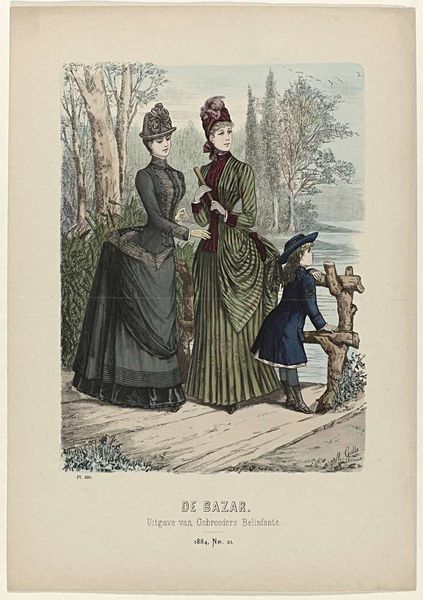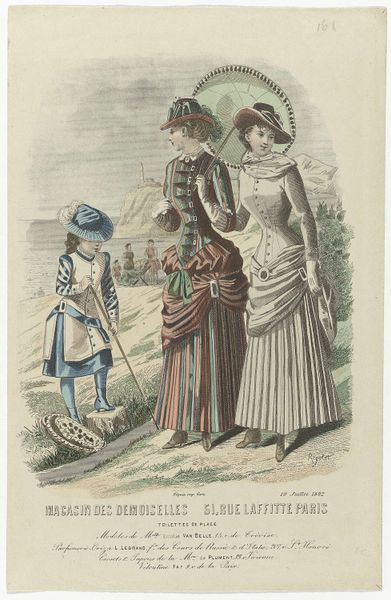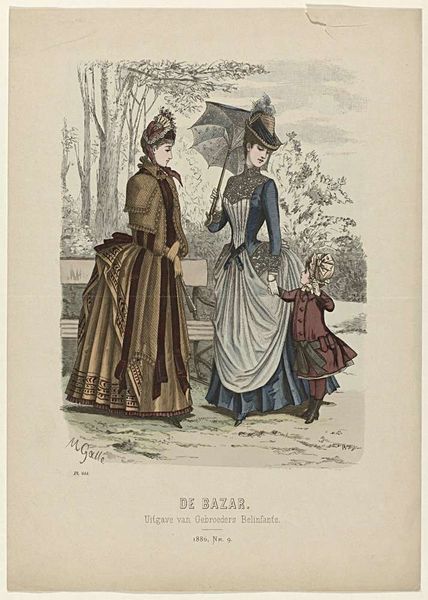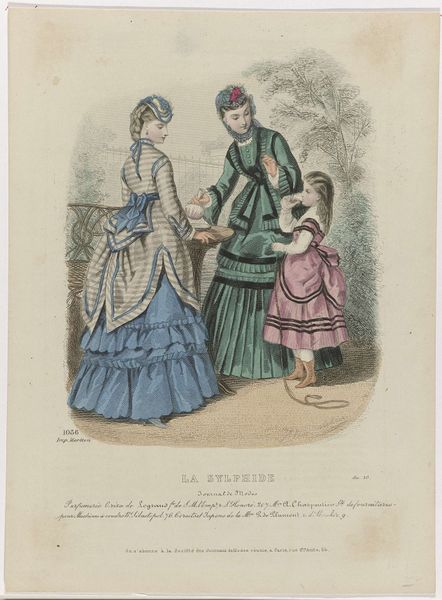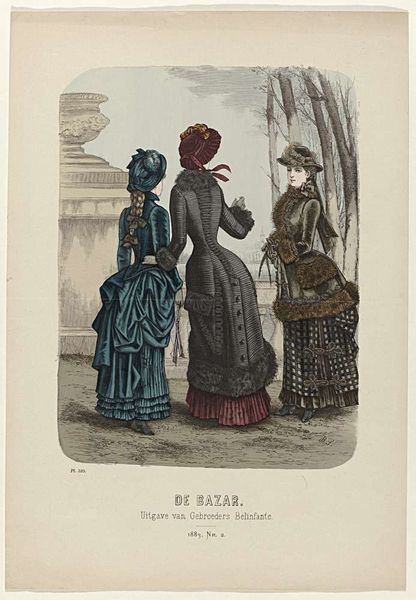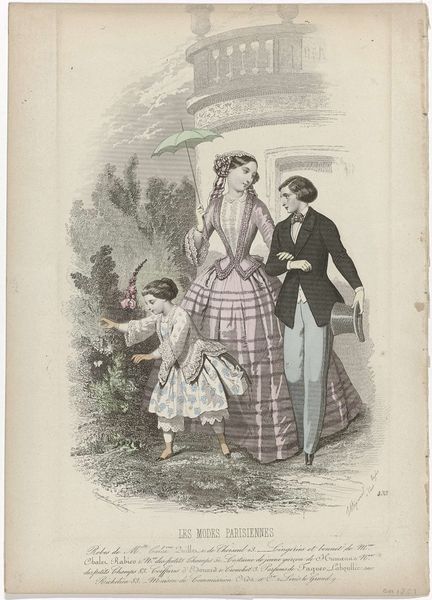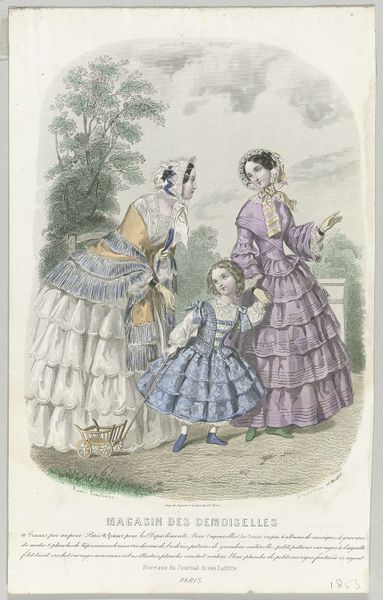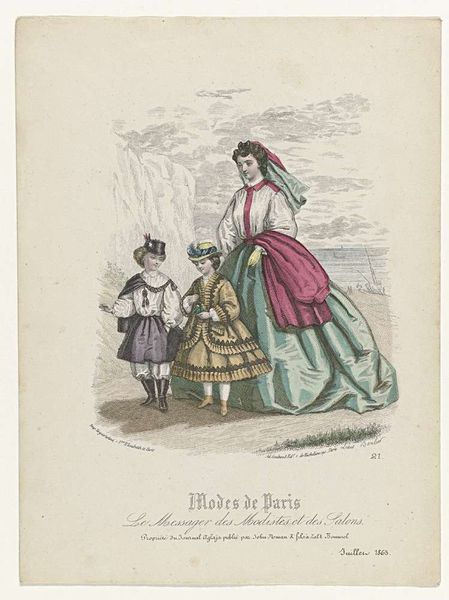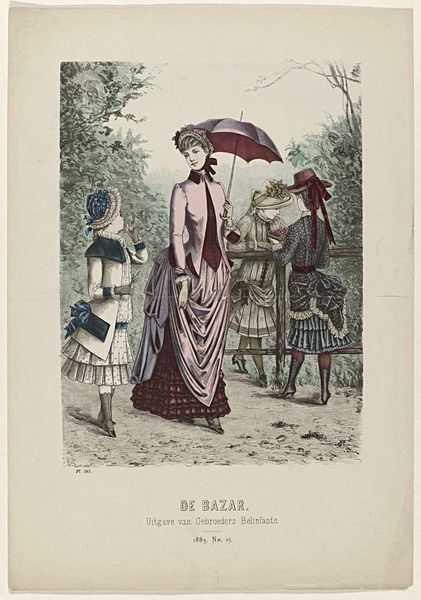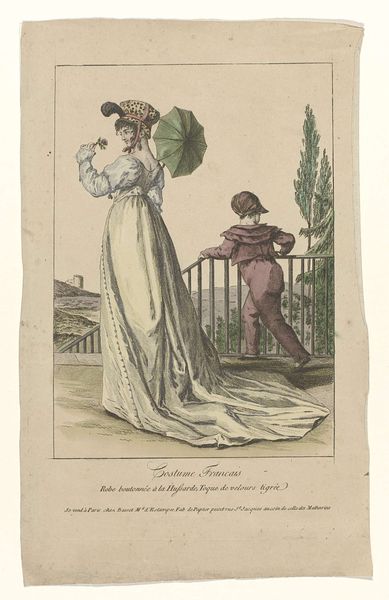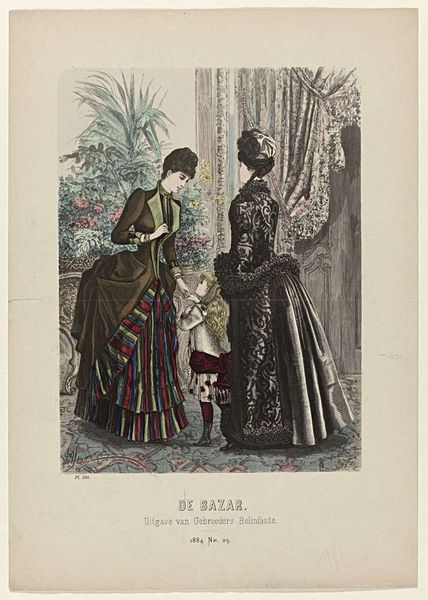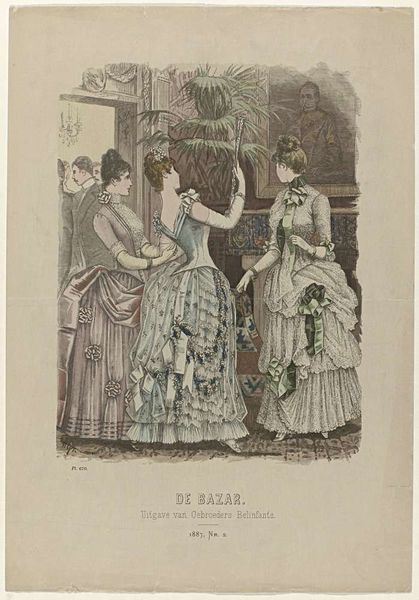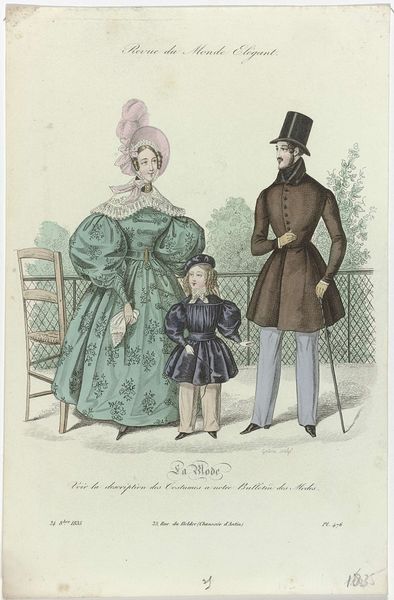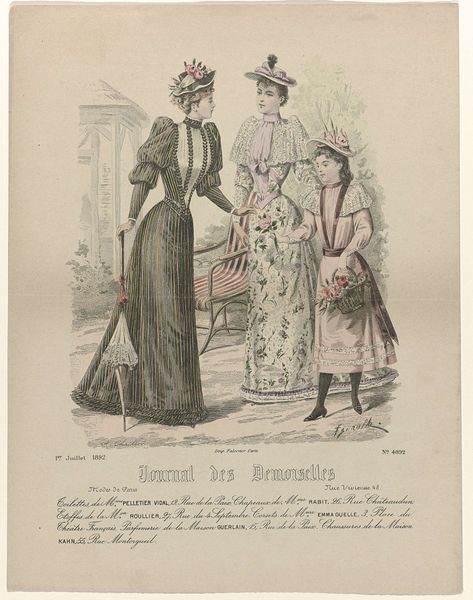
Dimensions: height 382 mm, width 270 mm
Copyright: Rijks Museum: Open Domain
This fashion plate, titled ‘De Bazar,’ was printed in 1882 by an anonymous artist using a commercial printing process. Though the image is two-dimensional, its visual impact hinges on the material effects of textile: the crisp pleats of the woman's skirt, the plushness of the girl's velvet jacket, and the woven tartan of the other child’s dress. The print would have been made through a mechanised process, likely lithography or a related technique that allowed for detailed reproduction. The fashion plate like this one played a crucial role in the rise of consumer culture. It provided a template for fashionable dress, as well as an aspirational vision of bourgeois life. While the artist remains unknown, the detailed rendering of clothing speaks to the skill and labor involved in both the making of the print and the production of the garments it depicts. By focusing on materiality and process, we can appreciate how this image participates in a wider network of labor, aesthetics, and consumption.
Comments
No comments
Be the first to comment and join the conversation on the ultimate creative platform.
